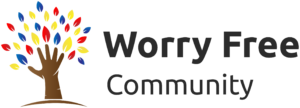Taking Community Health Beyond CBPR
This multi-stakeholder symposium aims to demonstrate and build upon the adoption of the Mosque-PCOR Toolkit through the Community Health Worker channel. This is the second national Mosque-PCOR event that highlights Muslim community efforts in establishing a culture of engagement for patient-centered outcomes research. The first event in October 2019 discussed PCOR concepts to combat health disparities and delivered a Mosque-based PCOR toolkit for stakeholders. Since then, the Mosque-PCOR toolkit has been disseminated through community health workers and adopted by the first-ever Patient-Centered Free and Charitable Clinic. Today, our symposium presents the implementation essence of the one-year PCORI funded project, Equipping Muslims with PCOR-Based, Action-Oriented Research Tool (EMPART), by bringing together a diverse set of stakeholders representing and elaborating on the universal applicability of this tool.
Dedication:
This event is being dedicated to one of the most eminent human figures, Syeddinah Hazrat Bilal ibn Rabbah, who lived around the 6th century, and was born into slavery but came to symbolize, what we call in today’s terms, Diversity, Equity, and Inclusion.
REGISTER FOR SYMPOSIUM: Exploring Patient-Centeredness in Faith Communities
DAY 1
Friday, September 17th, 2021
10:00 am – 4:30 pm
Session 1: 10:00 am – 11:00 am
ACA Pushes the Bar in Favor of Patient-Centeredness – 1 CME/CEU
Presenters: Margaret Dombrowski, MPH; Fatema Mirza, MBA, PMP
This session outlines the inception of the Patient Centered Outcomes Research Institute (PCORI) and related initiatives under the Affordable Care Act (ACA) legislation which separated community-based participatory research and patient outcomes research. Both disciplines are compared in the contexts of social determinants of health and the presenters explore how patient-centeredness tools help patients and caregivers make better informed healthcare decisions. This presentation further highlights the interconnectedness of patient-centeredness and outcomes research concepts with the discipline of Translational Sciences, related initiatives under the aegis of the National Institute of Health (NIH), Agency for Healthcare Research & Quality (AHRQ), and patient-centeredness’ value for capacity building to engage diverse stakeholders for outcomes research opportunities. The session concludes with the introduction of the PCORI funded project, Engaging Muslims American for Research on Community Health, EMARCH.
Session 2: 11:00 am – 12:30 pm
An Asset-Based Approach to Train Community Health Workers in Faith Communities – 1.5 CME/CEU
Presenter: Rebecca Johnson, Ph.D.
This session summarizes the use of the asset-based approach in the PCORI funded project, Equipping Muslims with PCOR-Based, Action Oriented Tools, EMPART. Specifically, Dr. Johnson will describe a Faith-Based Community Health Worker Training program where 10 CHWs were trained to perform community outreach in a virtual environment during the pandemic lockdowns to empower communities to make informed choices. Dr. Johnson explores in depth the concept of “research” in community context and introduces patient and caregiver engagement strategies to amplify their voices. Dr .Johnson will further elucidate what an Asset-Based approach to community health work is and how it is currently being used by several PCORI engagement award recipients to fulfill the need for patient-centered programming in faith-communities. This model was successfully employed to develop the Mosque-PCOR Community Health Worker Training program.
Session 3: 2:10 pm – 2:30 pm
Dedication, Supplication, and Acknowledgements
Presenter: Muhammad Saif Ullah, MPH
Due to the special significance of Friday prayers and supplications for Muslims, this time is being used to formally dedicate this project to Hazrat Bilal Ibn Rabbah (RA). This will be followed by acknowledging community members who were involved and contributed their efforts and time to the EMPART projects and for the wellbeing of the mosque-communities and its stakeholders, and the offering of supplications for them and our communities.
Session 4: 2:30 pm – 4:30 pm
Adopting a Faith-Based PCOR Toolkit to Maximize Health Outcomes in Free Clinics – 1.5 CMEs/CEUs
Presenters: Fatema Mirza, Dr. Roxanne Smith, MD.
This session presents a working model for clinicians and healthcare care administrators for setting up Free and Charitable Clinics in underserved communities through the establishment of partnerships with local healthcare providers by exercising PCORI engagement principles. This session explores the dynamics of formulating reciprocal relationships with patients, caregivers, and local CBOs by examining their interests and needs that fosters shared decision making, seeks opportunities for co-learning and sets up examples of transparency and honesty to develop the needed trust for a high-performance healthcare system. The model banks on the specially trained Mosque-PCOR Community Health Workers with their asset-based approach to support patient choices.
Dr. Smith will share her reflections on patient-centered clinical practices from the perspective of a physician and program director of a Family Practice residency program, as her team caters to a diverse new immigrant population with multiple determinants of their wellbeing. CHWs trained in Faith-Based PCOR methods have been valuable connectors supporting patient and caregivers needs and preferences, which is expected to translate into a positive impact on health disparities.
DAY 2
Saturday, September 18th, 2021
11:00 am – 4:30 pm
Session 5: 10:30 am – 12:00 pm
PCOR Leaders in Mosque-Communities 1.0 CMEs/CEUs
Moderator: Sondos Al Sad, MD
Faith-based PCOR Researchers have been working in Mosque communities across the US since 2016 identifying ways to bring patient-centeredness to mosque-community health programming. The first PCORI funded mosque community project generated the Mosque-PCOR toolkit in 2018 for community health stakeholders to design and conduct health programming specific for mosque-setting. Since then, the mosque-community stakeholders have utilized the toolkit didactics to successfully engage community stakeholders to enhance patient voices in their communities.
This workshop-style session will have presenters from diverse backgrounds sharing their understanding of PCOR and experiences about the application of its tools to generate and enhance outcomes of their projects. These presentations will be preceded by a moderated discussion to facilitate a practical understanding of the implementation and adoption of PCOR tools by faith communities, particularly Muslim communities.
Session 6: 12:15 pm – 2:00 pm
Mosque-PCOR Toolkit: A Framework for Community Health Programming in Mosque Communities 1.5 CMEs/CEUs
Presenters: Aasim Padela, MD, M.Sc.
Presentation will describe the “Muslim” dimension of patient-centered research, explain the components and framework of Mosque-PCOR toolkit, and describes PCOR lifecycle and contrasts with project life cycle. Audiences will learn to design strategies to engage and recruit patients and community stakeholders within the mosque-communities and develop or participate in planning, conducting, and implementation of patient-centered outcomes research projects to tackle Muslim health disparities.
Session 7: 2:30 pm – 4:30 pm
Leaders Roundtable with PCOR Program Officer – 2 CMEs/CEUs
A PCORI Program Officer will present an overview of the organization, its philosophy, operations, type of research projects, and its funding portfolios. She will discuss the PCORI National Priorities and engage the panel in a facilitated discussion providing feedback on incorporating these priorities with health programing in mosque-community. Dr. Aasim Padela will moderate and facilitate the discussion with community leaders to better engage diverse stakeholders in communities.





